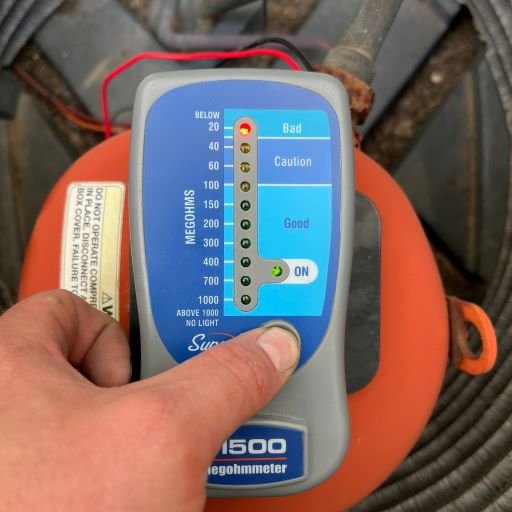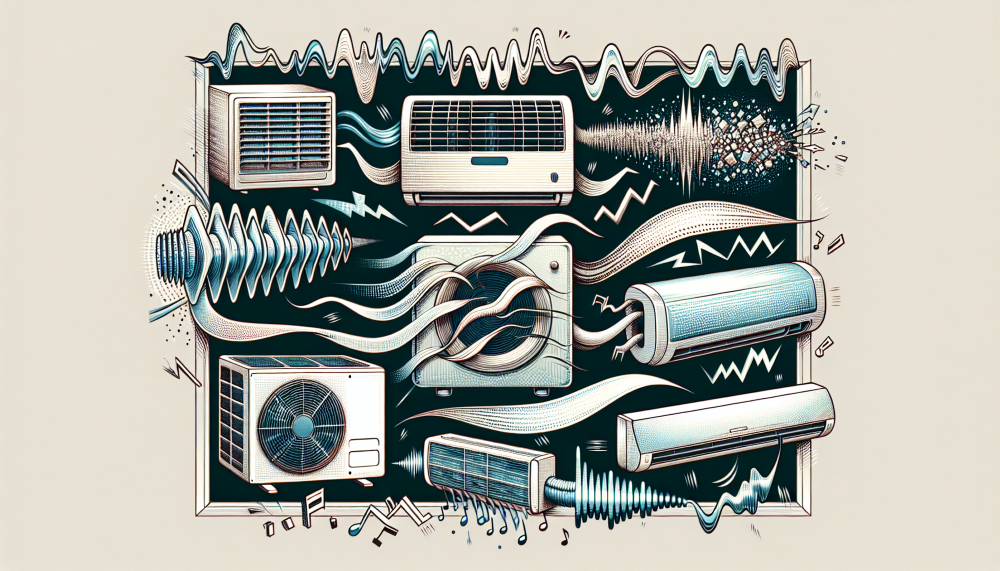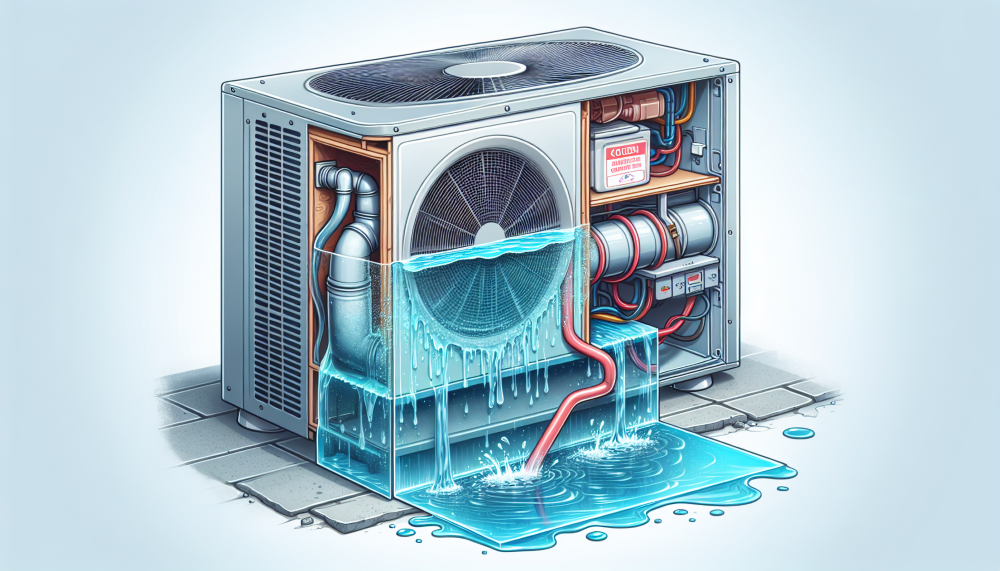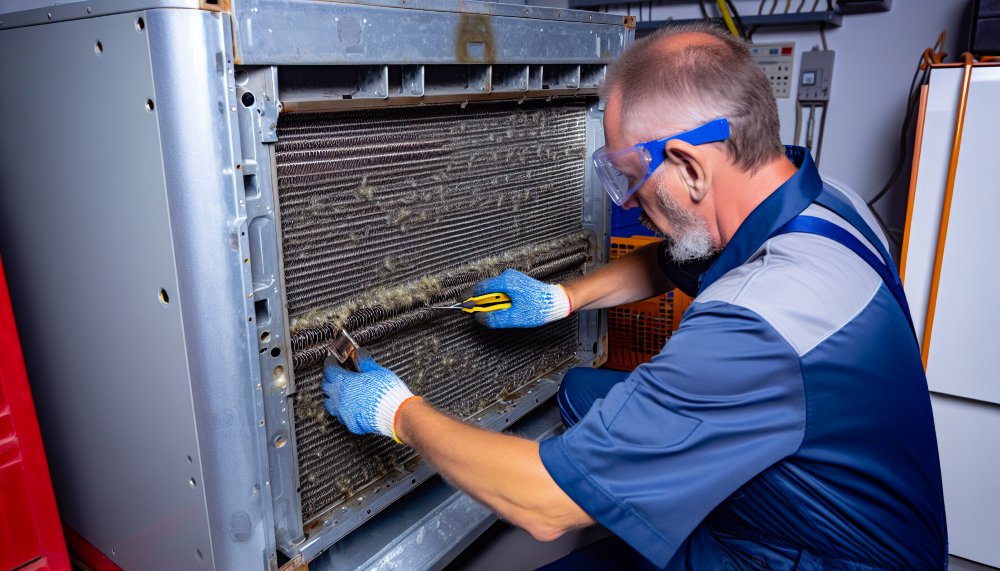How Do I Know if My AC Compressor Is Bad?
Struggling with a failing AC can be frustrating. How do I know if my AC compressor is bad? Listen for odd noises, notice if your unit blows warm air, check airflow strength, and monitor your circuit breaker for frequent trips. These issues often point to compressor troubles. Follow along as we dive into these signs, explain their significance, and offer actionable advice without overwhelming you with details.
Key Takeaways
Early detection of AC compressor issues, such as unusual noises, warm air blowing, reduced airflow, and circuit breaker trips, can prevent complete system failure and costly repairs.
Common causes of AC compressor failure include wear and tear from age, lack of maintenance, electrical issues, and refrigerant leaks, emphasizing the importance of regular checks and upkeep.
Professional evaluation and repair may be necessary for persistent symptoms, complex issues like electrical faults or refrigerant leaks, or when considering costly repairs or replacement of the AC compressor.
Recognizing the Symptoms of a Faulty AC Compressor
Imagine a day when the gentle hum of your air conditioner turns into a cacophony of strange noises, or worse, starts blowing warm air instead of a cool breeze. These are just a couple of telltale signs that your air conditioner compressor, also known as the AC compressor, might be in distress. Recognizing such symptoms early can save you from the sweltering heat and avert the expensive aftermath of a complete system breakdown.
Therefore, we should be attentive to any indications our reliable AC compressor may be signaling distress, as a failing AC compressor can cause serious issues.
Unusual Noises
Have you ever heard a rattle, a buzz, or a hiss that seemed out of place coming from your air conditioner? These unusual noises are like the first drops of rain warning of an impending storm. Here are some common noises and what they might indicate:
Clicking or grinding sounds might signal that the compressor’s internal components are wearing out.
Chattering noises could point to electrical component issues.
If the noises progress to rumbling or clunking, it’s possible that the motor mounts are failing.
Ignoring these sound warnings would be unwise as they are often precursors to a complete compressor breakdown.
Warm Air Blowing
On a hot day, the last thing you want is for your AC to betray you by huffing out warm air instead of blowing cold air. When your air conditioner starts to blow warm air, it’s a clear indication that something is amiss. Low refrigerant levels or leaks can pressure the compressor into overdrive, leading to its demise. This is a problem that escalates quickly and requires the expertise of an HVAC professional to prevent further damage.
Hence, if your vents are emitting a tepid breeze rather than a refreshing chill, an investigation is warranted.
Reduced Airflow
When the breeze from your air conditioner feels more like a timid trickle, it might be a sign that your compressor is losing its strength. Reduced airflow is a symptom not to be taken lightly, as it’s a strong indication of a potentially failing compressor. If you notice that your system isn’t pushing out air as robustly as it should, it’s time to act swiftly. Don’t wait for the issue to escalate; call in an HVAC professional for a thorough diagnostic and service.
Frequent Circuit Breaker Trips
Have you found yourself frequently flipping the circuit breaker back on for your AC unit? This inconvenience might point to a deeper issue with your AC compressor. An overheating compressor can draw too much power, causing the circuit breaker to trip as a safety precaution. If this is a recurring issue, it’s a sign that your compressor could be on the brink of failure and needs a professional examination.
Unchecked, this electrical symptom could evolve into more grave issues in the future.
The Causes Behind AC Compressor Failure
The demise of an AC compressor doesn’t occur in a vacuum; several culprits contribute to its downfall. From the wear and tear of age to the silent creep of refrigerant leaks, understanding the root causes of compressor failure is essential for any homeowner. This knowledge not only helps in addressing current issues but also paves the way for preventative measures to protect your air conditioner’s longevity.
Peeling back the layers, we can analyze the common enemies of a fully functional AC compressor.
Age and Wear
Like all mechanical devices, AC compressors have a finite lifespan, typically ranging from 10 to 15 years. The relentless cycle of compression and heat can gradually wear down even the sturdiest of compressors, especially if they’re exposed to harsh outdoor conditions. As the years roll by, the natural degradation of components can lead to inefficiencies and eventual failure.
This is a clear demonstration of time’s relentless progression and the need to identify when your AC compressor is approaching its end.
Lack of Maintenance
The road to compressor failure is often paved with good intentions – or rather, the lack of them. Neglecting regular maintenance tasks like cleaning condenser coils and replacing air filters can lead to a build-up of dirt and debris. This accumulation forces the compressor to overwork, increasing the risk of overheating and ultimately, failure.
Preserving the compressor’s well-being necessitates regular maintenance, which includes keeping the condenser unit, or the air conditioning unit, free of obstacles. A little attention aids greatly in preserving the core of your air conditioning system.
Electrical Issues
The electrical veins that power your AC compressor can also be its undoing. Damaged fuses, exposed wires, and voltage irregularities can wreak havoc on the compressor. Such problems can lead to overheating or even direct damage to the compressor’s internal components.
When you hear the telltale clicking of a faulty relay switch or see signs of burnt wiring, it’s time to call in the cavalry – an HVAC professional who can safely navigate these electrical minefields and protect your compressor from a shocking end.
Refrigerant Leaks
A leak in your AC system is akin to a slow poison for your compressor. When refrigerant levels drop due to leaks, the compressor must labor excessively to circulate what little refrigerant remains. This not only reduces the efficiency of your air conditioning but also increases the risk of compressor failure.
It is crucial to regularly check refrigerant levels and swiftly repair any leaks to prevent undue pressure on your compressor. Ensuring the integrity of your AC system’s lines is a key defense against the silent threat of refrigerant leaks.
DIY Troubleshooting Tips for a Bad AC Compressor
Before you reach for the phone to call an HVAC professional, there are a few steps you can take to troubleshoot a bad AC compressor. Basic checks like examining the thermostat, inspecting the circuit breaker, and ensuring clean air filters can sometimes reveal simple issues that are easily rectified. These DIY troubleshooting tips can save you time and money, and possibly even the inconvenience of a service call.
Equipping ourselves with some practical knowledge, we can attempt to resolve our AC troubles.
Thermostat Check
The thermostat is your AC system’s brain, dictating when to cool and when to rest. An incorrectly set or malfunctioning thermostat can mimic the symptoms of a bad compressor. To check if the thermostat is the culprit, ensure it is set to cool and that the temperature is lower than the current room temperature. For digital units, running a system test can help determine if it’s functioning properly.
This straightforward step can either eliminate or validate the necessity for additional probing into your AC system’s issues.
Circuit Breaker and Fuse Inspection
The circuit breaker is your home’s first line of defense against electrical issues, and a tripped breaker could be all that stands between you and a working AC unit. To inspect, locate your AC’s breaker switch in the electrical panel and check if it has tripped. Resetting a tripped breaker is as easy as flipping it off and then on again.
Similarly, inspecting the AC unit’s fuses for signs of damage and replacing them if necessary is a straightforward step that could restore your system to full functionality.
Air Filter Examination
The humble air filter can have a significant impact on your AC system’s health. A clogged filter restricts airflow, forcing your compressor to work harder and increasing the risk of failure. Regularly inspecting and replacing dirty air filters is an easy and essential task to maintain optimal performance.
Furthermore, ensuring that air vents are clear from obstructions like furniture or rugs helps maintain proper airflow and prevent AC issues. Taking the time to perform this simple maintenance can mean the difference between a brief hiccup and a total system meltdown.
When to Call an HVAC Professional
Sometimes, even the most diligent troubleshooting efforts fall short, and that’s when you know it’s time to call in an HVAC professional. Persistent symptoms after basic troubleshooting, complex repairs, and replacement considerations are all scenarios where expert assistance becomes indispensable.
We should determine the appropriate time to relinquish the toolkit and solicit assistance from those proficient in AC system intricacies.
Persistent Symptoms
If your AC system continues to struggle after you’ve checked the thermostat, reset the circuit breaker, and ensured that the air filter is clean, it’s a strong indicator that you need professional help. Persistent symptoms like repeated tripping of the circuit breaker and unusual noises or odors from the unit signal the need for an HVAC technician’s expertise.
They can diagnose the root of the problem and determine whether it’s a sign of a compressor issue or another complex repair that’s beyond the scope of DIY efforts.
Complex Repairs
Electrical issues and refrigerant leaks are the types of complex problems that you shouldn’t tackle on your own. These require a deeper understanding of the AC system and the potential risks associated with handling electrical components and hazardous materials like refrigerant.
When faced with such issues, an HVAC professional’s skilled hand is necessary to safely and effectively make the needed repairs, ensuring the longevity of your AC compressor and preventing further issues down the line.
Replacement
There comes a time when repairing an aging AC system no longer makes financial sense, and considering a replacement becomes the more prudent option. The cost of replacing an AC compressor can be substantial, and a professional can help you weigh the benefits of repairing versus replacing your unit.
Given the complexity of the installation and the need for precise refrigerant handling, compressor replacement is a task best left to experienced technicians. They can offer valuable insights into the most efficient and cost-effective solutions for your home.
Preventative Measures to Extend Your AC Compressor's Lifespan
Defending your AC compressor from premature failure is not only about fixing issues as they arise but also about taking proactive steps to extend its lifespan. Regular maintenance, efficient usage, and timely professional inspections can all contribute to a longer, healthier life for your compressor.
Exploring preventative measures can help maintain the flow of cold air, ensuring the cool air remains consistent and keeping repair costs to a minimum.
Regular Maintenance
The role of regular maintenance in preventing AC compressor issues cannot be overstated. Ensuring clean air filters and condenser coils helps maintain efficient operation and reduce the stress on your compressor. Scheduling regular professional maintenance checks can also help optimize your AC unit’s performance and potentially extend its lifespan.
Implementing these simple yet effective steps can safeguard your compressor from overheating and the amplified wear that accompanies neglect.
Proper Usage
Using your air conditioning system efficiently is just as important as regular maintenance in preserving your compressor. Consistent temperature settings, the use of ceiling fans, and avoiding overuse can all help reduce the workload on the compressor and extend the lifespan of your air conditioners.
Commitment to these practices not only prolongs your AC compressor’s life but also conserves energy and benefits the environment.
Timely Inspections
Annual inspections by a qualified HVAC technician play a crucial role in maintaining the performance and efficiency of your HVAC system. Here are some benefits of regular inspections:
Identifying potential issues before they develop into major problems
Preventing expensive repairs
Ensuring that your system is running at peak efficiency
By scheduling annual inspections, you can save money in the long run and ensure the longevity of your HVAC system.
Planning these inspections before the onset of the cooling season ensures your AC compressor is prepared to efficiently manage the summer heat.
Summary
As we’ve navigated through the complexities of AC compressors, it’s become clear that vigilance and maintenance are key to ensuring lasting cool comfort in our homes. From recognizing the early signs of a faulty compressor to understanding the causes behind its failure, we’ve equipped ourselves with the knowledge to act decisively. Remember, at the first hint of unusual noises, warm air, or reduced airflow, it’s time to engage in some DIY troubleshooting. And when the situation is beyond our expertise, we know the invaluable role an HVAC professional plays. By embracing regular maintenance and timely inspections, we not only extend the life of our AC compressors but also enhance our overall home comfort. Let’s keep these tips in mind and ensure our cool comfort isn’t at risk.
Frequently Asked Questions
What are the symptoms of a bad AC compressor?
If you hear ticking or chattering noises, experience reduced airflow, notice warmer air, or encounter leaking refrigerant, your AC compressor might be failing. Additionally, if the unit vibrates when starting or if the circuit breaker keeps tripping, these could also indicate compressor issues.
How do I test my AC compressor?
To test your AC compressor, first ensure it has cooled down, then use a multimeter set on Continuity to test each terminal for flow. If any terminal shows no flow, it indicates damage or breakage (Answers 1 and 3).
How do you know if your AC compressor needs to be replaced?
If you notice reduced airflow or no cold air, have problems with the circuit breaker, hear strange noises, experience moisture issues, or the AC won't start, it may be time to replace the compressor.
How often should I replace my air filter to prevent AC compressor issues?
Replace your air filter every 45-90 days to maintain optimal airflow and reduce stress on the AC compressor. This will help prevent AC compressor issues.
Can a bad AC compressor still cool my home temporarily?
Yes, a failing compressor may temporarily cool your home, but it will likely overheat and lead to system failure, requiring immediate attention from an HVAC technician.









